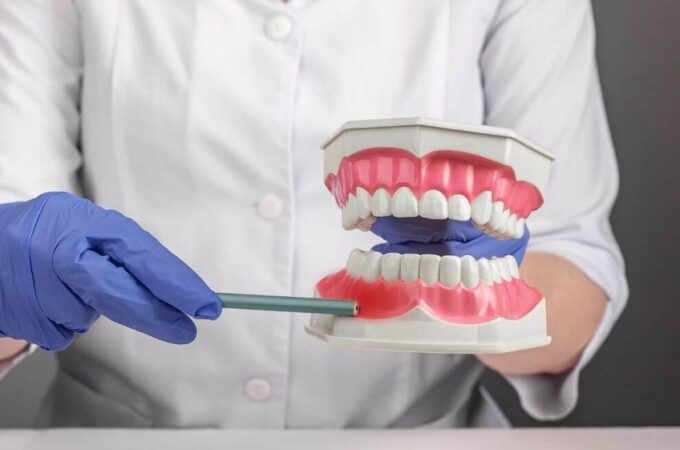
Are all dentists qualified to do root canals?
Root canal treatment is a common dental procedure that involves removing the infected or damaged pulp from inside a tooth and filling it with a material that helps to maintain its structural integrity.
Although root canals have a reputation for being painful and unpleasant, they are a necessary treatment to save a damaged or infected tooth.
What is a root canal?
When the pulp becomes infected or damaged, it can cause pain, swelling, and even lead to the loss of the tooth.
What does a root canal involve?
A root canal typically involves several steps. The first step is to numb the area around the tooth with a local anesthetic. This helps to ensure that the patient does not feel any pain during the procedure.
Once the area is numb, the dentist will make a small hole in the top of the tooth to access the pulp chamber.
The dentist will then use special tools to remove the damaged or infected pulp from inside the tooth.
Once the pulp has been removed, the dentist will clean and shape the root canals of the tooth.
After the root canals have been cleaned and shaped, the dentist will fill them with a filling material to prevent any further infection.
The filling material is usually a rubber-like substance called gutta-percha. The dentist will then place a temporary filling over the tooth to protect it until a permanent filling or crown can be placed.
Are all dentists qualified to do root canals?
The short answer is that not all dentists are qualified to do root canals, but many are.
To understand why not all dentists are qualified to perform root canals, it’s important to understand the training and education required to become a dentist.
In most countries, dentists must complete a dental degree program that typically takes four years to complete.
During this time, they receive training in all aspects of general dentistry, including diagnosing and treating common dental problems, such as cavity, gum disease, and tooth decay.
However, root canal treatment is a specialized procedure that requires additional training and expertise beyond what is typically taught in a dental degree program.
Dentists who want to perform root canals must undergo additional training and education in endodontics, which is the branch of dentistry that focuses on the diagnosis, prevention, and treatment of dental pulp diseases.
Endodontic training typically involves completing a postgraduate program that can take anywhere from one to three years to complete, depending on the country and the specific program.
During this time, dentists receive specialized training in the diagnosis and treatment of complex dental problems, including root canals.
In addition to specialized training, dentists who perform root canals must also have access to specialized equipment and materials that are not typically found in a general dental office.
For example, they may need access to advanced imaging technology, such as digital X-rays or cone beam computed tomography (CBCT), to help them visualize the internal structure of the tooth.
Given the specialized training and equipment required to perform root canal treatment, it’s clear that not all dentists are qualified to do so.
However, many dentists do have the necessary training and expertise to perform root canals, and they may choose to specialize in endodontics as part of their practice.
If you need a root canal, it’s important to choose a dentist who is qualified and experienced in performing the procedure. You can ask your general dentist for a referral to an endodontist or search online for a root canal specialist in your area.
Cases in which general dentists can perform root canals
In most cases, a general dentist will send a patient to an endodontist in order for the root canal procedure to be performed.
However, depending on the circumstances, a general dentist might feel confident enough to carry out the procedure in their own office in certain cases.
This circumstance arises very infrequently, and when it does, it is restricted to situations in which a tooth possesses a single root and the likelihood of the process failing is low.
For example, the level of expertise required to treat upper and lower canines, upper and lower incisors, and lower premolars is typically within the scope of practice for general practitioners who specialize in family dentistry.
This could be as a result of the fact that canines, incisors, and premolars often have just a single root canal that is relatively vast in size.
Endodontists, on the other hand, should be the ones to treat molars because the anatomy of their root canals is more complicated.
Endodontists have extensive education to prepare them to manage the significant number of roots and separate root canals that can be found in a single molar.
The same may be said about the higher premolars, which often have a greater number of roots and canals in their roots.
Benefits of working with a general dentist
Of course, if a general dentist can perform a root canal, there are a few benefits to letting them. Below are some of the more enticing advantages.
Cost
Since a generalist does not undergo the extensive additional training an endodontist does, the cost of a root canal performed by a family dentist will generally be lower. However, a patient should not let cost alone guide the decision-making process.
Convenience
There are many parts of the country in which endodontists are scarce if not non-existent. In these regions, patients have to travel hours just to undergo a single procedure. In these parts of the country, it is more convenient to allow general dentists to perform a root canal.
Familiarity
Many patients struggle with dental phobia, which is a crippling fear of the dentist and dental office environment. These patients may be uncomfortable allowing an unknown person to perform such an intricate procedure. In these cases, it may be most beneficial to allow a family dentist to conduct the root canal.
Even patients who do not live with dental phobia may find the familiarity beneficial. For instance, a person’s family dentist is more likely to be flexible regarding billing, insurance and scheduling, while a focused practice may not be.
Continuity
Many patients’ mouths are riddled with quirks and nuances with which their family dentists are familiar but that may be difficult to convey to a newcomer. In these cases, it may be best to allow a generalist to perform all the different treatments the mouth requires.
While some general dentists may have experience performing root canals, it’s important to seek out the services of an endodontist when it comes to complex cases.
Endodontists are trained and equipped with the expertise, technology, and specialized tools to perform root canals with a high degree of accuracy and precision, leading to a higher likelihood of a successful outcome.
When choosing a dentist to perform a root canal, it’s important to do your research, ask questions, and seek out the services of a qualified and experienced professional to ensure the best possible outcome.





